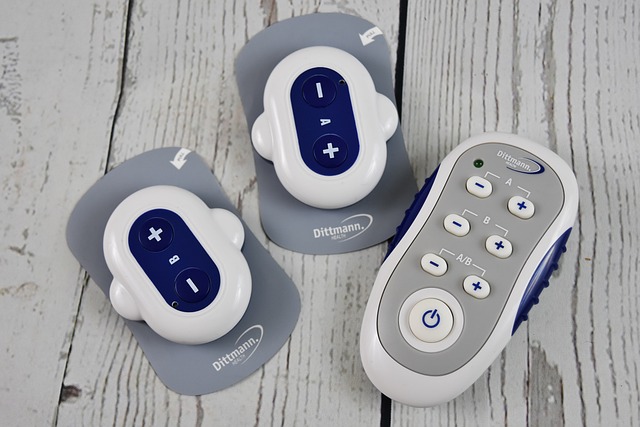Cold water therapy, including immersions in cold water, offers significant benefits for mental well-being. Combining this ancient practice with mindfulness enhances its therapeutic effects by reducing stress, improving mood, and promoting deeper relaxation. Scientific research supports its use in alleviating pain, boosting the immune system, and increasing resilience to stress through regular practice. Incorporating cold plunges and mindfulness techniques into self-care routines can dramatically improve mental health and overall quality of life for individuals seeking natural solutions for stress and anxiety management.
Discover the powerful synergy of cold water therapy and mindfulness for profound relaxation. Combining these ancient practices offers a modern approach to self-care, unlocking deep calm and enhancing mental well-being. In this article, we explore ‘cold water therapy for mental health’, delving into its benefits, incorporating mindfulness techniques, and providing practical steps to integrate these practices into your daily routine for optimal stress relief and enhanced mental clarity.
Understanding Cold Water Therapy: Unlocking Its Potential for Relaxation
Cold water therapy, also known as hydrotherapy or cryotherapy, has gained popularity in recent years for its potential benefits to both physical and mental well-being. This ancient practice involves exposing oneself to cold water, often through brief immersions or plunges, to stimulate a range of physiological responses in the body. By contrasting hot and cold temperatures, cold water therapy can help reduce inflammation, improve circulation, and enhance overall vitality.
One of the most promising aspects of cold water therapy is its positive impact on mental health. The practice induces a deep sense of calm and relaxation by activating the parasympathetic nervous system, which counteracts the stress response triggered by the sympathetic nervous system. This activation leads to lower heart rate, reduced blood pressure, and a decrease in stress hormones like cortisol. As a result, regular cold plunges can improve mood, enhance cognitive function, and promote a deeper sense of mental clarity and resilience. For individuals seeking effective strategies for managing stress and anxiety, cold water therapy offers a natural and powerful tool to unlock profound relaxation and support overall mental health.
Mindfulness Practices to Enhance Cold Plunge Experience
Combining mindfulness with cold plunges can significantly enhance the relaxation and therapeutic benefits, making it an effective practice for improving mental health. During a cold water therapy session, focus your attention on the physical sensations as you submerge yourself in the cold. Notice the initial shock of temperature contrast, the constriction of blood vessels, and then observe how your body gradually adapts and relaxes. This mindful awareness allows you to fully immerse in the experience, releasing tension and stress more profoundly.
Additionally, integrating breathing techniques with the cold plunge can be transformative. Slow, deep breaths while entering the cold water help calm the mind and prepare the body for the shock. As you breathe, acknowledge any emotions that arise—whether it’s a sense of chill or a surge of energy—and let them pass like clouds in the sky. This practice cultivates mental clarity, enhances focus, and reinforces the connection between your mind and body, ultimately promoting deeper relaxation and improved mental well-being through cold water therapy for mental health.
Scientific Insights: The Impact of Cold on Mental Well-being
Cold water therapy, such as cold plunges or immersing oneself in ice-cold water, has gained attention for its potential benefits to mental well-being, supported by emerging scientific insights. Studies suggest that exposure to cold triggers a series of physiological changes in the body, leading to reduced inflammation and improved immune function. This process can significantly impact mental health by promoting the release of endorphins, often referred to as “feel-good” hormones, which act as natural painkillers and mood elevators.
Beyond these immediate effects, regular cold water therapy is associated with enhanced resilience to stress. The body’s response to cold involves a surge in noradrenaline, a neurotransmitter linked to alertness and focus. This reaction can help individuals cultivate a sense of calm after a stressful event or even throughout the day. As mindfulness practices emphasize being present in the moment, combining cold plunges with mindfulness routines could offer a powerful approach to achieving profound relaxation and mental clarity.
Incorporating Cold Plunges and Mindfulness into Your Self-Care Routine
Incorporating cold plunges and mindfulness into your self-care routine can significantly enhance overall well-being, especially when it comes to mental health. Cold water therapy, such as immersing yourself in an ice bath or taking a cold shower, triggers a series of physiological responses that promote relaxation and stress reduction. The sudden exposure to cold stimulates the release of endorphins, often referred to as ‘feel-good’ hormones, which can help alleviate symptoms of anxiety and depression.
Mindfulness, on the other hand, is the practice of being fully present in the moment without judgment. When combined with cold water therapy, mindfulness techniques allow you to embrace the sensory experience, focusing on the physical sensations of cold and the breathing process. This dual approach not only deepens relaxation but also fosters a stronger connection between your mind and body, making it an effective strategy for maintaining mental health and improving overall quality of life.
Combining cold water therapy with mindfulness practices offers a powerful approach to achieve profound relaxation and enhance mental well-being. By integrating these techniques into your self-care routine, you can unlock the full potential of cold plunges—a simple yet effective method to reduce stress and improve overall health. Embrace the benefits of cold water therapy for mental health and discover a calmer, more balanced state of mind.
